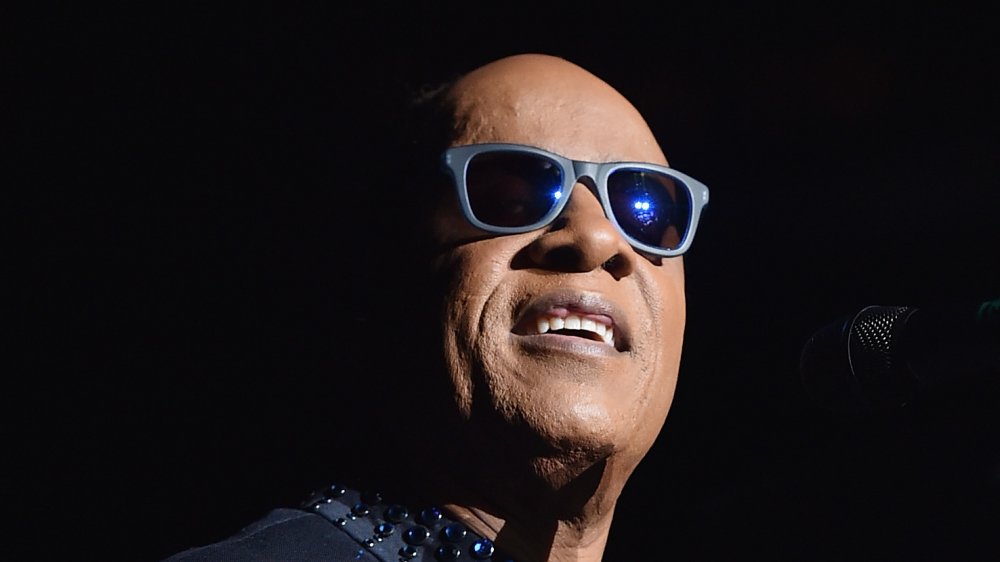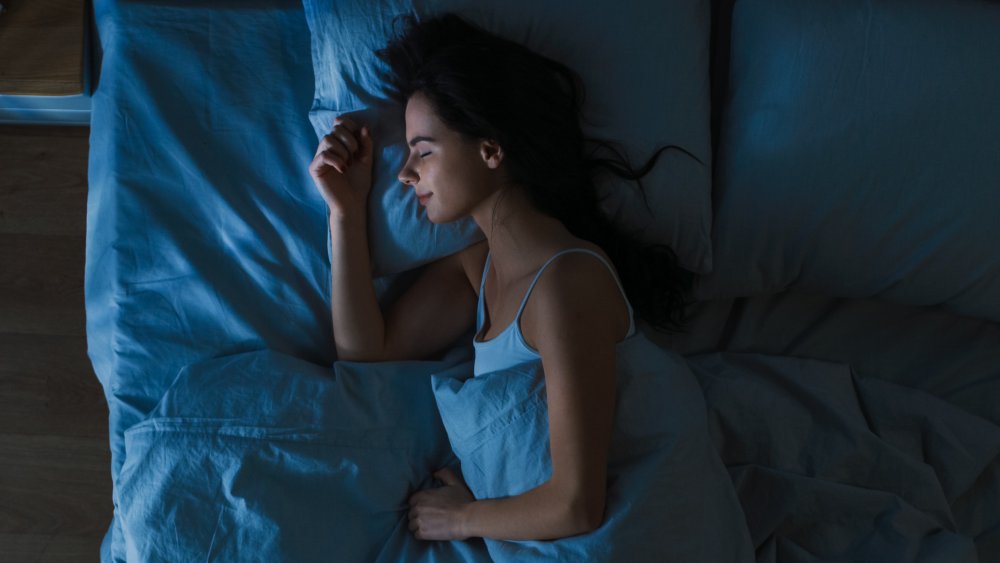This Is What Blind People See In Their Dreams
For many people, to dream is to see. Perhaps in the land of nod, a person will be delighted by the sight of prancing white horses in a pond of vivid colors that look like a melted box of crayons. Maybe a dreamer will scream in their sleep after seeing their own head on a pike, in a world of black and white. Or maybe they'll dream of marrying Sigmund Freud's mom before antagonistically asking Siggy, "Who's your daddy?" Even in the waking world, a visionary is someone who dreams big.
The connection between sight and sleep can be seen in a dreaming brain. In a 2017 article for Psychology Today, University of Rochester sleep researcher Dr. Michelle Carr writes that about 30 to 90 seconds before REM sleep sets in, the brain produces PGO (Ponto-Geniculate-Occipital) waves, which are thought to stimulate the visual cortex and generate visual dreams. However, what might that mean for a blind person? Do Stevie Wonder's "innervisions" become literal visions when he dreams at night?
Dreaming in the dark
Trying to discern whether a blind person can see in their sleep isn't necessarily as clear-cut as it might sound. Not every blind person is completely without sight, and not every person without vision was born blind. Healthline cites evidence suggesting that people who become blind before age five generally don't see images in their dreams. Those who lose their sight later in life might see in their dreams. ThoughtCo spoke with an individual identified as Joey, who is legally blind with 20/400 vision, which means that he must stand at a distance of 20 feet to see an object that most people can see from 400 feet away (via The Eye Care Institute). He said he "constantly sees neon speckles that are always moving and changing colors." However, when he sleeps, his mind's eye might have better vision — if, in the past, he could see the world clearly.
But not everyone would agree with that assessment. According to Dr. Michelle Carr, a 2017 study points out that a person who has always been blind wouldn't know if they could see in their sleep: "Even if there were images and colours in his brain during the dream, how could he recognize them?" Moreover, a blind person's eyes still move during REM sleep, though less than the eyes of a person with sight. That activity may indicate that even people who are blind from birth see when they dream, without realizing it.

